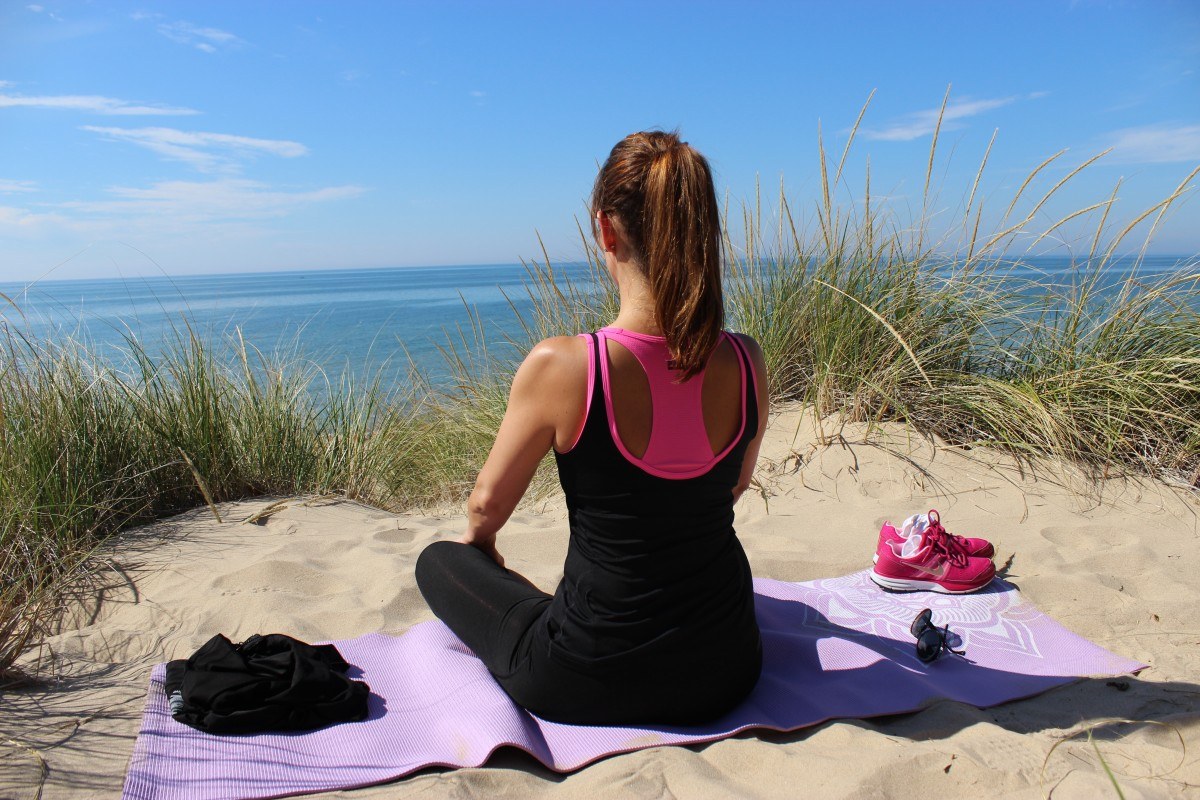Anxiety Vs Depression: How Are They Different?
Source: https://www.betterhelp.com/advice/depression/anxiety-vs-depression-how-are-they-different/
Everyone experiences bouts of anxiety or sadness from time to time in response to difficult events in their lives, such as the loss of a job or the death of a loved one. If, however, you’re consistently feeling sad and losing interest in the things you once loved, or find that you’re caught up with worry so much that it’s interfering with your ability to live a normal life, you may have depression, anxiety, or both.
Anxiety and depression are common conditions that are all around us. Anxiety disorders are the most pervasive, affecting up to 40 million Americans each year. Depression is also widespread and affects 16 million people in the US yearly.

Wondering If You Have Anxiety Or Depression? Get Advice From A Licensed Therapist Today
Source: pexels.com
Comparing anxiety vs depression can help you identify if the symptoms you’re experiencing are due to one or the other. While both conditions have similarities, they have their own causes and symptoms. Understanding the differences between the two can help you get appropriate treatment.
The difference between anxiety and depression can be best explained by first laying out what each condition looks like. Depression is a mood disorder, while anxiety is classified differently in its own separate category.
What is Anxiety?
An anxiety disorder is characterized by chronic worry that impacts an individual’s functioning. A person with an anxiety disorder may constantly worry about the future, either real or imagined. People with anxiety tend to avoid the situations or places that make them anxious, which may bring relief temporarily, but only trains the brain to strengthen the fear associated with the trigger.
Symptoms of anxiety may include:
- Constant worry
- Nervousness
- Fear that is disproportionate to the situation
- Negative and distorted thinking
- Heart palpitations
- Tension
- Excessive sweating
- Trouble concentrating
- Irritability
To qualify as having an anxiety disorder, an individual will need to experience the above symptoms to a significant degree for six months or more. Depending on the type of anxiety disorder present, a person may experience panic attacks. Panic attacks are discreet episodes of intense fear usually accompanied by benign but worrisome physical symptoms, such as heart palpitations and shortness of breath. Anxiety can range from mild nervousness to severe worry and fear that impairs your functioning.
What is Depression?
Depression revolves less around fear or worry and more on excessive and persistent sadness or numbness. A person with depression may lose interest in activities and hobbies that they used to find rewarding. Energy and motivation are usually affected, and a person with depression may feel as though they are dragging around a lead weight. Once simple tasks, such as taking a shower or cleaning the dishes, may suddenly take a lot more effort.

Source: pexels.com
Symptoms of depression may include:
- Feeling sad and hopeless
- Negative thinking patterns
- Loss of self-esteem
- Impaired concentration
- Lack of motivation
- Loss of appetite or increased appetite
- Insomnia or increased need for sleep
- Low energy and fatigue
- Becoming overwhelmed easily
For depression to be diagnosed, these symptoms must have persisted for more than two weeks. Like anxiety, depression can range from mild to severe. It is more commonly diagnosed in women than men, although this may be due to differences in the way the condition presents. There are several different types of depression, all with specific clusters of symptoms.
Do I Have Anxiety or Depression?
When it comes to the difference between anxiety and depression, it’s not always clear cut. A mental health professional can assess you to determine whether you have anxiety, depression, or both. Diagnosis usually consists of an in-person interview where you talk about your symptoms and their effect on you, as well as other aspects of your life. Once a diagnosis is determined, from there treatment can be suggested.
While the two conditions are distinct, they also frequently coexist, in what is termed comorbidity. Depression with anxiety is not uncommon. Anxiety and depression appear to share a neurochemical link. Both conditions are considered to be associated with low amounts of serotonin and dopamine in the brain. It can be helpful to think of anxiety and depression as two versions of the same thing.

Wondering If You Have Anxiety Or Depression?Get Advice From A Licensed Therapist Today
Source: rawpixel.com
Can Anxiety Cause Depression?
Sometimes it’s hard to determine which problem happened first, though often depression occurs after someone has been struggling with anxiety for a while. Anxiety might cause an individual to isolate themselves from the triggers of their symptoms, and that isolation may lead to depressive symptoms and a lack of interest in once-pleasurable activities.
Social anxiety and depression are particularly linked for this reason. Social anxiety can cause intense symptoms such as nervousness, shortness of breath, and sweating in social situations, causing a tendency to isolate and a lowering of the person’s self-esteem.
How to Fight Depression and Anxiety
There are many treatments available for depression and anxiety and tend to overlap. Untreated, these conditions can take a serious toll on your life, decreasing your productivity, causing havoc on your relationships, and shrinking your world. Severe depression and anxiety may require multiple different treatments and take time to resolve. Treatments can be extremely effective, but only one in five people with anxiety or depression actually seek treatment.
Working with a Therapist
Whether you’re struggling with depression, anxiety, or both, recovery can be difficult on your own. Severe depression and anxiety can warp your thought process so much that you may feel that you’re stuck and that nothing will ever improve. A professional therapist can assist you in developing coping mechanisms and learning tactics for improving your symptoms.
BetterHelp offers affordable, professional online counseling that you can access from anywhere. For some people with anxiety and depression, especially if you’ve been struggling for a long time, it can be hard to go through the process of finding a therapist and keeping up with regular appointments. Online therapy, on the other hand, allows you to speak with someone wherever you are.
Therapy has been shown to be the most effective treatment for depression and anxiety, especially when it’s combined with medication. Lifestyle changes can also be added to reduce the frequency and intensity of both conditions.

Source: unsplash.com
Medications & Supplements
Both depression and anxiety are generally treated with the same types of medication. Selective serotonin reuptake inhibitors (SSRIs) are the first line of treatment in most cases. About 50% of patients will experience relief with these medications. Other medications that are sometimes used for depression and anxiety include Wellbutrin, benzodiazepines, and atypical antipsychotics. Work with your doctor in order to determine which medications help without causing unwanted side effects.
Supplements for depression and anxiety can also be effective. Magnesium has been shown to be deficient in some people displaying depression symptoms and supplementation may be able to reduce symptoms. St. John’s Wort has been used as an alternative to antidepressant medication for many years but has shown varying results in studies. 5-HTP is another supplement that is widely available that can be effective. 5-HTP converts to serotonin in the brain and can improve mood in people who don’t have a sufficient amount of this neurotransmitter. Always talk to your doctor before beginning any new supplement.
Alternative Therapies
Cardio Exercise
Exercise has shown to be an effective treatment for depression, especially aerobic exercise. 30 minutes of aerobic exercise most days a week can lead to an improvement in depression and anxiety symptoms. For people with moderate to severe depression, beginning an exercise routine can be difficult, so it’s suggested to start slowly and gradually build up stamina.
Yoga
Another form of exercise that can be beneficial is yoga. For anxiety and depression, this type of exercise that focuses on breathing and stretching is often helpful to reduce symptoms.

Source: pxhere.com
Foods That Reduce Anxiety and Depression
Many people who are experiencing mental health conditions have poor diets, whether it’s due to a lack of hunger or cravings for unhealthy foods. Foods that help with depression and anxiety are packed with vitamins and minerals that the individual with these conditions may be deficient in. For example, Vitamin D is often linked to mood disorders, and eating foods high in this vitamin, such as eggs or milk, can reduce symptoms.
Essential Oils for Anxiety and Depression
Some research has shown essential oils to be beneficial in treating anxiety and depression. Essential oils such as lavender and ginger may have antidepressant effects for patients. One study showed bergamot oil was effective in lowering signs of anxiety.
How to Help Someone with Anxiety and Depression
If someone close to you is struggling with anxiety or depression, such as a friend or family member, you’re probably wondering how you can support them. It may be difficult to know what to do. Being in a relationship with someone who has depression and anxiety can be particularly hard.
It’s helpful to familiarize yourself with these conditions and what the symptoms look like. In general, the best way to help someone struggling with mental health issues is to be there for them and listen without judgment. Don’t diminish what they’re feeling. Support them in getting treatment, but don’t try to force them to if they are not ready. Try not to offer too much advice, especially if the person doesn’t ask for it. Be patient with the person and remember to take care of yourself, too.
Depression and anxiety are becoming more and more common, but knowing what signs to recognize can help you seek treatment and begin to improve. Severe depression and anxiety can take time and patience to treat but there is hope. One quote about depression and anxiety to remember, from therapist Helen Wilson: “No matter how hopeless and depressed you feel, I promise that you won’t feel this way forever. Keep going.”
